Turning an eco- smart dream into reality

The sky turns crystal clear and Mount Fuji becomes completely visible from the windows of the makeshift pavilion on a former Panasonic home appliance factory site. Glittering sunshine and a Sake barrel add to the perfect preconditions for a ceremonial day.
In the pavilion, at the heart of Fujisawa Sustainable Smart Town (SST), company executives are busy preparing for a ceremony. That Thursday, November 27 marks the 120th birthday of Panasonic Corporation’s late father Konosuke Matsushita, who spent his life pursuing management aimed at contributing to the development of society and the well-being of people around the world.
Yet the executives are doing more than celebrating their founder’s 120th anniversary. Under Matsushita’s business philosophy – “Start anew every day” – they are to lay an important milestone in Panasonic’s course to renew itself by going to announce a 'smart day'.
The grand opening of Fujisawa SST, finished with the traditional Japanese Sake breaking procedure that morning, has delivered Panasonic’s message to the world that it is more than an electronics maker and “how energy will be brought to life in a sustainable smart town that will open its doors to a new age of hope”.
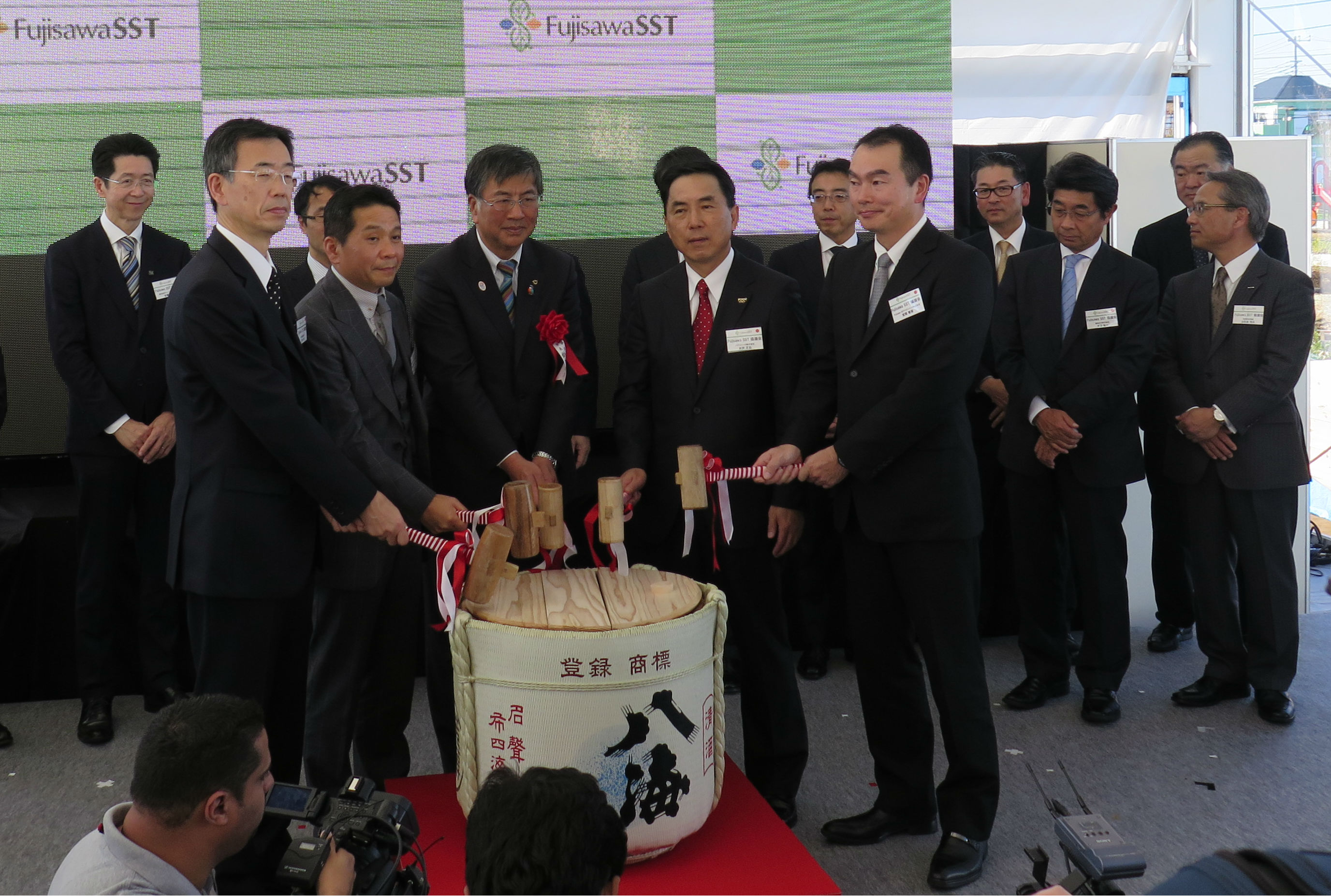
Town seeking ultimate ideal
Fujisawa SST, 51km southwest of Tokyo Station and about 2km from East Japan Railway's Fujisawa Station, is developed by the Panasonic-led consortium Fujisawa SST Council on Kanagawa Prefecture's prosperous Shonan coast. The developers boast that they do not simply aim to create a state-of-the art smart town, but a town seeking the ultimate ideal.
“At Fujsawa SST, the primary consideration was to create a concept for a smart community lifestyle based on resident comfort, regional characteristics, and future living patterns – taking into account such aspects as energy, security, mobility, and healthcare,” reads the project blueprint.
At first glance, the 19ha leaf shaped property looks like a demonstration area for dreamers only.
The very first visible green-tech sign is a 400-metre long, 103.5kW line of solar panels partly fencing the area, supplying power for public services including 24/7 security cameras and automatically controlled zero CO2-emission Light Emitting Diode (LED) streetlights. These smart devices allow the tracking of motions inside the area to give prompt security alerts to town operators and residents, as well as to adjust lighting economically.
Top-range electric cars including BMW i3, Nissan Leaf, Tesla, Toyota Prius, and Panasonic electrical assisted bicycles ready to serve at public and home charging stations, while dense solar panel rooftops also painting the green-tech landscape and underline the photovoltaic core of the town's energy supplies. "The electric vehicles are shared between town residents," says Hiroyuki Morita, Fujisawa SST Promotion team leader, explaining that the bike are for residents' charge-free use, while electric car rents are only applicable after the first six hours of use every day.

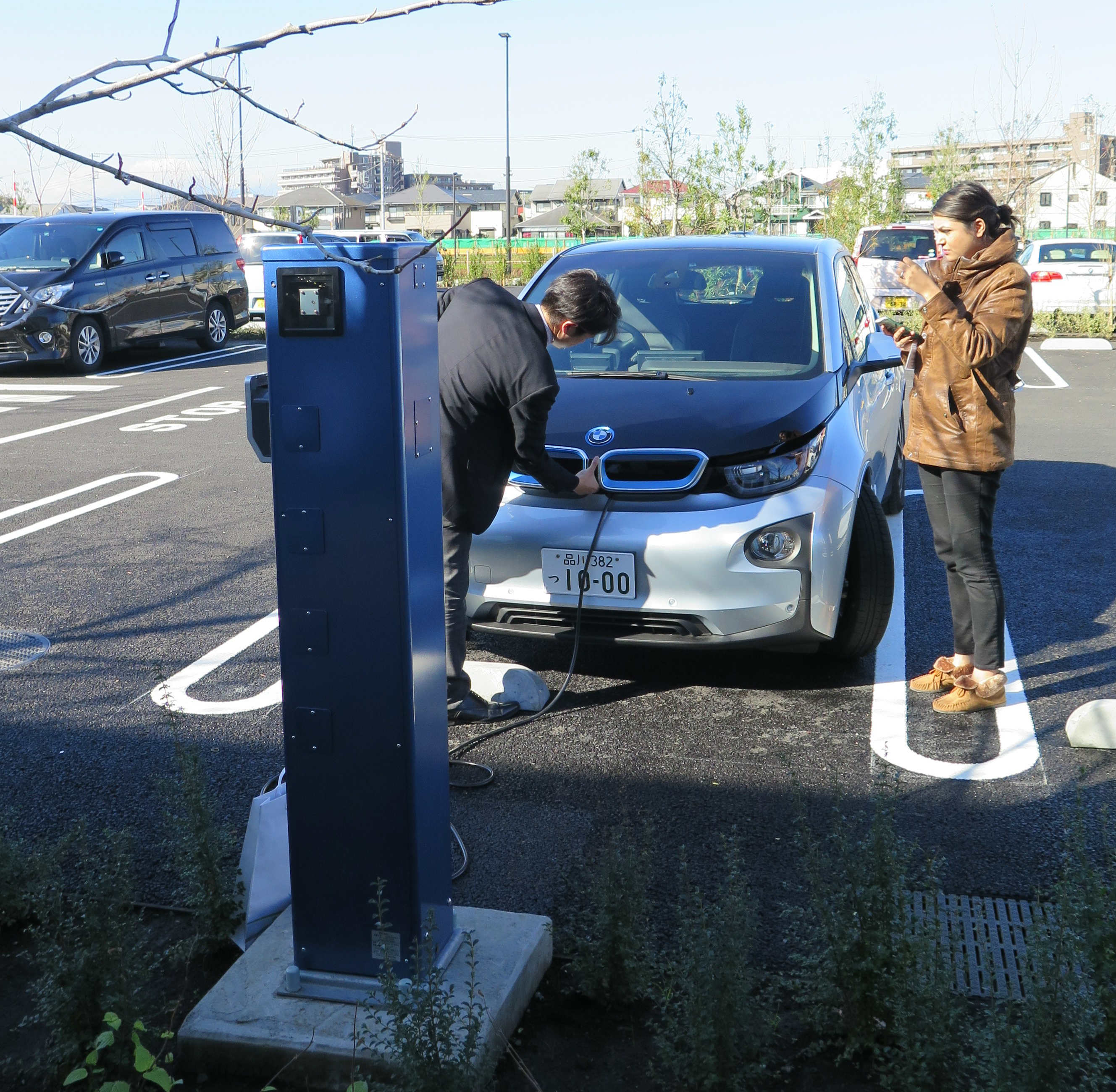
Eco-car sharing is a unique feature of Fujisawa SST
"By using the eco-car sharing and rent-a-car services, residents in the zone can enjoy their lifestyle without the need to own a car while reducing economic burden and making effective use of the lot," says Tomohiko Miyahara, president of Fujisawa SST Management Company which manages the town.
Panasonic claims that such sharing services are a unique feature of Fujisawa SST’s mobility services, contributing to helping town residents address the regularly-seen traffic jams around the area, while simultaneously benefiting the environment and the regional community.
The mobility services are just part of the full-fledge, community-focused services provided by Fujisawa SST Square, the town's core facility playing a pivotal role in promoting its growth.
The Square has three main functions, according to Miyahara. For incubation, the Square Center and Square Future serves as a central communication base for people who get together there to relax, host environmental education, undertake presentations and tours, hold workshops and discuss the town's future, he explains.
For town management and community building, the Square Office and Square Lab serve as Community Continuity Plan center in emergencies and community craft center for people to enjoy food and hand-made items. The Square Office also hosts Fujisawa SST Management Company which provides five essential services in the town: energy, security, mobility, healthcare and community.
In mid December this year, a cultural complex called the Shonan T-Site will open to foster enriched lifestyle by basing on three axes, including entertainment, food/health, and family, says Noburu Takeda, president of Culture Convenience Club Co., Ltd. "Shonan T-Site aims to be a facility that families with children most want to visit," he says.
"It will be a facility with stores themed on books in a home-like space to enrich lifestyles in Shonan and offer best lifestyle proposals … It’s a base for inspiring residents and visitors to the Shonan area, nurturing new lifestyles, and making this lifestyle known to people outside the town," he adds.
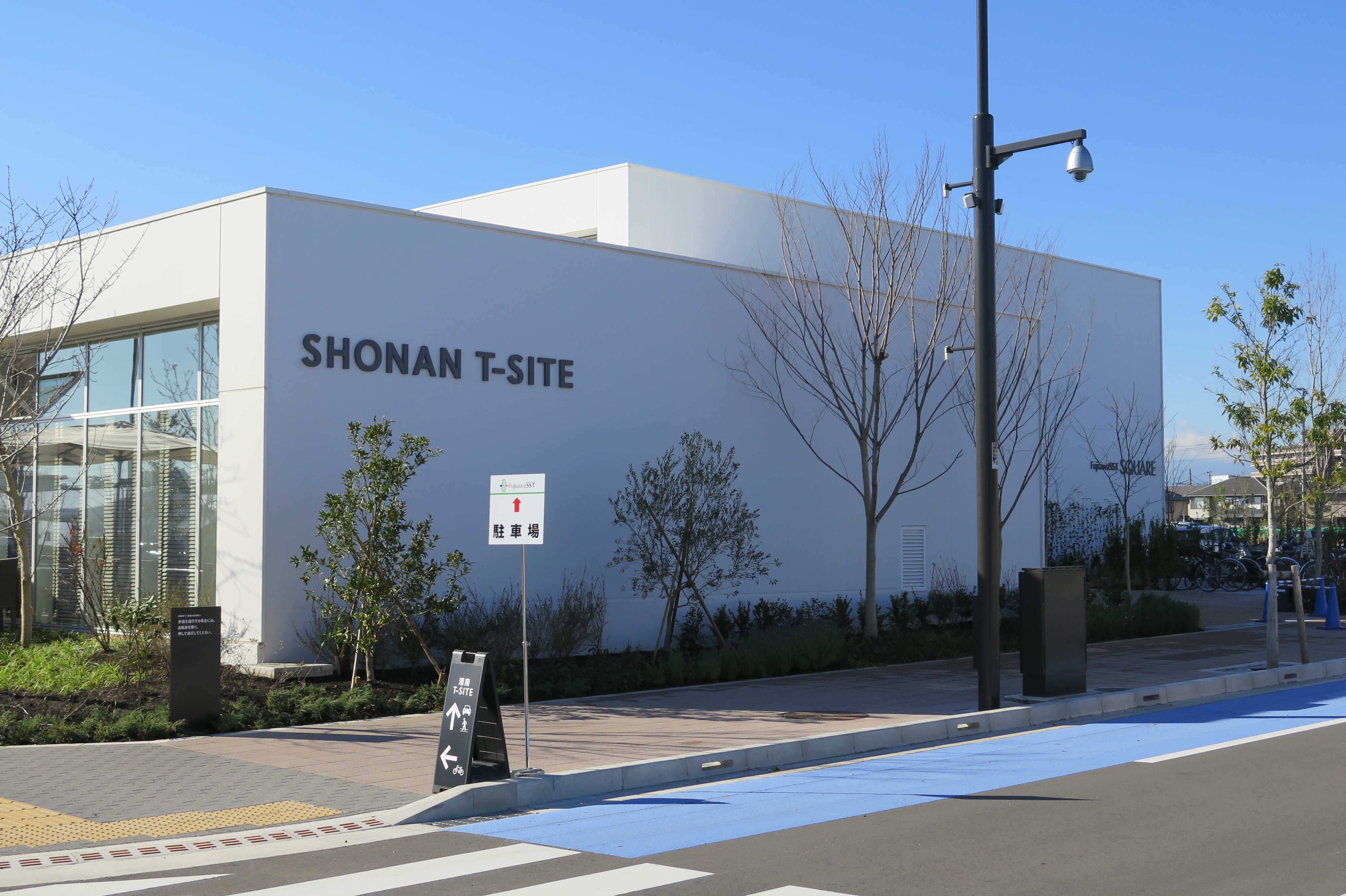
Shonan T-Site aims to be a lifestyle creation facility
For example, the venue will allow people to read 12,000 magazine titles and 130,000 books covering seven genres while having a cup of coffee. About 100 workshops and events are planned monthly for the T-Site, which aims to be a lifestyle creation facility offering more services that are unavailable over the internet than anywhere else, according to the project's blueprint.
Then a burst into a PanaHome smart house in Fujisawa SST amplifies the sense of a comfortable living here.
The smart home energy management system (HEMS) plays the central role in the smart technologies equipped for the house. The system, together with modular LED lighting showcased as Panasonic's flagship products at the ongoing headlined Panasonic Super Box 2014 Exhibition in Tokyo, provide home owners with a total energy management solution to track and control energy consumption of individual equipment in a visualised way by using pre-installed control panels, tablets and smartphones.
In Fujisawa SST, through a 55-inch smart TV pre-installed in the house as standard or wall-mounted control panels PCs, tablets and smartphones, the system also enables the landlords to see how much energy is generated by the house's solar panels itself, and how much created by the town's solar energy system. Given that, the system can provide a monthly Eco-life Recommendation Report that gives energy consulting services based on the family structure or the power use status, giving eco-friendly and budget-pleasing support by helping residents control excessive power use or sell the power generated by the house’s solar panels via Panasonic’s latest Energy Creation-storage Linked System for Home.
“Using the system enables you to respond to next-generation energy use styles, where the town and residents cooperate in electricity conservation,” says Miyahara.
Those smarts screens also serve as home owners’ accessories to utilise the one-stop portal site linked to town information and other unique services including event calendars, sightseeing information for the surrounding area, mobility sharing reservation, disaster alerts, and real-time images from the town’s surveillance cameras.
The detached houses are equipped with Panasonic’s state-of-the-art ventilation systems allowing all-time fresh air inflows, and Panasonic’s award-winning tiles with auto-clean and pollution air breaking features.
Built upon residents’ own lifestyles, the houses are aimed for three family generations to lead a prosperous life in a 100-year vision, says Masahiro Ido, Panasonic Corporation’s Executive Officer and director of Business Solution Division.
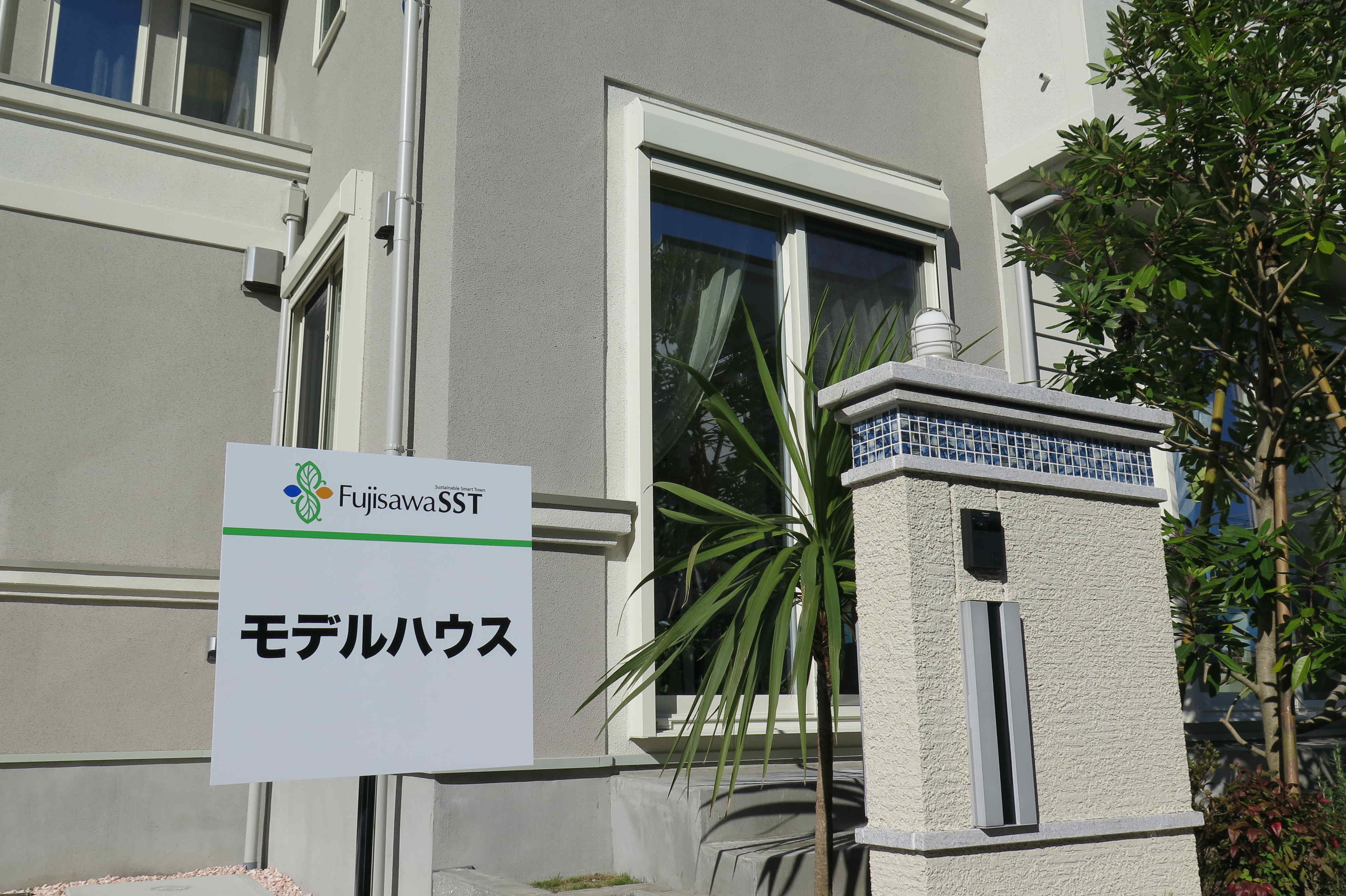

The houses are aimed for three family generations to lead a prosperous life in a 100-year vision
“It will develop for 30 years, mature for 30 years and then further evolve for 30 years … Fujisawa will be established as a sustainable town where eco and smart lifestyles will continue to flourish,” he says, adding that with the grand opening, the town is shifting from the development phase to nurturing phase.
By 2018, when the project completes, there will be 600 detached houses and 400 condominiums built to accommodate 1,000 households with an estimated 3,000 residents.
Making it affordable worldwide
Despite “seeking an ultimate ideal” and given the world-recorded expensive housing price in Japan, the town is surprisingly affordable for buyers. With an average standard house equipped with two air conditions, a 55-inch smart TV, a 4.8kW solar panels system and a 4.65kWh lithium storage battery to bank unused energy, and priced between 50-60 million yen ($413,000-496,000), the houses are of virtually the same price levels without eco-friendly and smart features in adjacent areas of Fujisawa City, according to Hiroyuki Morita.
The prices are also about the levels of average detached houses in Hanoi, Vietnam.
“Prices for detached houses with smart equipment will be about 10 per cent higher,” he adds, saying 120 houses have been sold.
However, owners have to pay a monthly management cost of some 12,000 yen, “an unprecedented fee for detached house in Japan,” he says. “All buyers are explained about the fee and they accept.”’
The developers expect a 40 billion yen revenue in the next 30 years, he adds.
Still, Panasonic executives don’t want to stop in Fujisawa City. The 60 billion yen development – the first of its kind in the world – is expected to be the model replicable in Japan and overseas, using integrated energy technologies at large scales.
“Panasonic has several similar idle land lots in Japan and we will develop similar projects,” says Ido. “We will actively promote smart town projects in Japan and other countries modeled on Fujisawa SST.”
Acknowledging that there are already more than 600 smart city projects globally, Panasonic still want to make it distinct and be a trendsetter with its exclusive concept.
“What we honour at Fujisawa SST is not the town’s scale, but the underlying concept and process of how it was built,” the corporation states on its website. “In a technology-centric smart town, the primary focus is infrastructure … Services for residents are the last consideration,” it says, noting that Fujisawa SST’s design is based on residents’ lifestyles and the “Fujisawa model” is interesting as it approaches city development from what people want and need, not technologies.
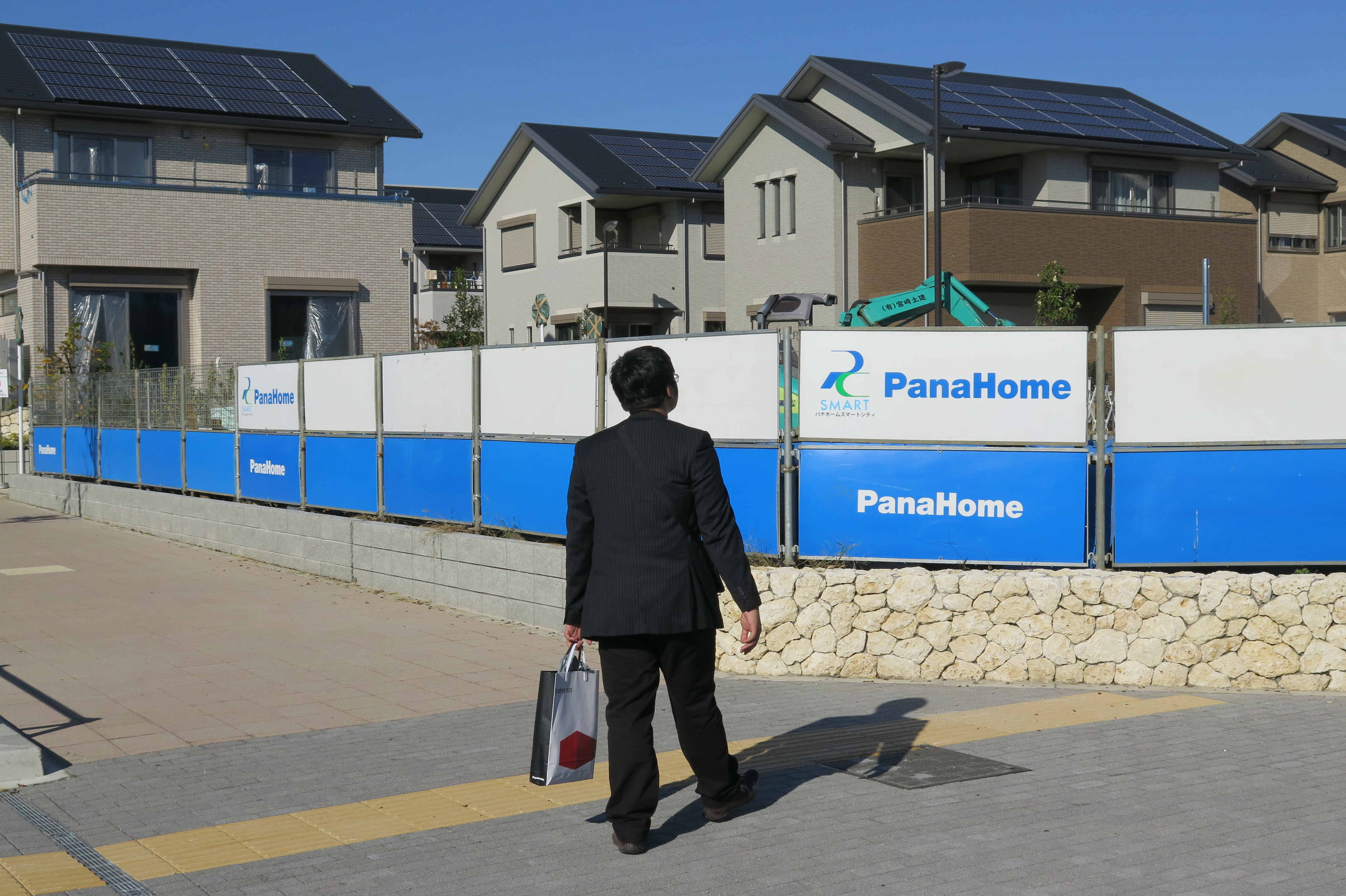
The 60 billion yen Fujisawa SST is expected to be the model replicable in Japan and overseas
Nobuo Takahashi, director for Overseas Business Division of PanaHome Corporation – a member of Fujisawa SST Council – tells Vietnam Investment Review that the company is negotiating with Vietnamese partners to develop smart housing in Hanoi and Haiphong.
“We see Vietnam as a potential market,” he says without giving further details.
Giant renewing itself
Panasonic Corporation, ranked 5th in the Best Global Green Brands in 2014 by Interbrands and 106th in Fortune’s Global 500 in 2014, is striving with a vision to become the leading green innovation company when it celebrates its centennial in 2018.
Company executives view the Fujisawa SST project as a typical example of how the giant is renewing itself by successfully applying business-to-business, business-to-government and business-to-community approaches together.
"This is a new business model that combines the total power of the Panasonic group," Ido said.
Indeed, Fujisawa SST demonstrates Panasonic’s comprehensive home energy solutions and sustainability services in real home and town setting, bringing about a new business path for the corporation which faces a yearly revenue decline of 12.2 per cent to $77.225 billion in 2014, according to Fortune’s Global 500 in 2014.
“The ‘Fujisawa model’ is a revolutionary town-creation scheme that will bring energy to life, enhancing people’s lives with solar power, security, mobility, community, and healthcare. Fujisawa SST is our message to people and to the world that these problems could be solved,” the corporation announces on its website.
Fujisawa SST is brought to life by the close cooperation between Panasonic and the local government. In the beginning of 2007, Panasonic started to consult with Fujisawa City about how Panasonic could utilise the vacant land after it stopped production in its plants there. Fujisawa City focused on being an “Ecology-Oriented Town” in its city development strategy, while Panasonic has set its focus on becoming the “Number 1 Green Innovations Company in the Electronics Industry by 2018″. With a common concept, Fujisawa City and Panasonic agreed to use the cleared land to contribute to society in terms of ecology.
To turn the concept into a real town, Fujisawa SST has set a number of numerical targets. They include an overall 70 percent CO2 reduction from 1990 levels for the entire town and virtual zero emissions for detached houses, 30 per cent of the town’s energy to be generated renewably, and 30 per cent water consumption reduction compared to the equipment generally used in 2006.
In September 2013, Fujisawa SST was adopted as a “Model Project for Promoting CO2 Reduction in Housing and Building” by Japan Ministry of Land, Infrastructure, Transport and Tourism.
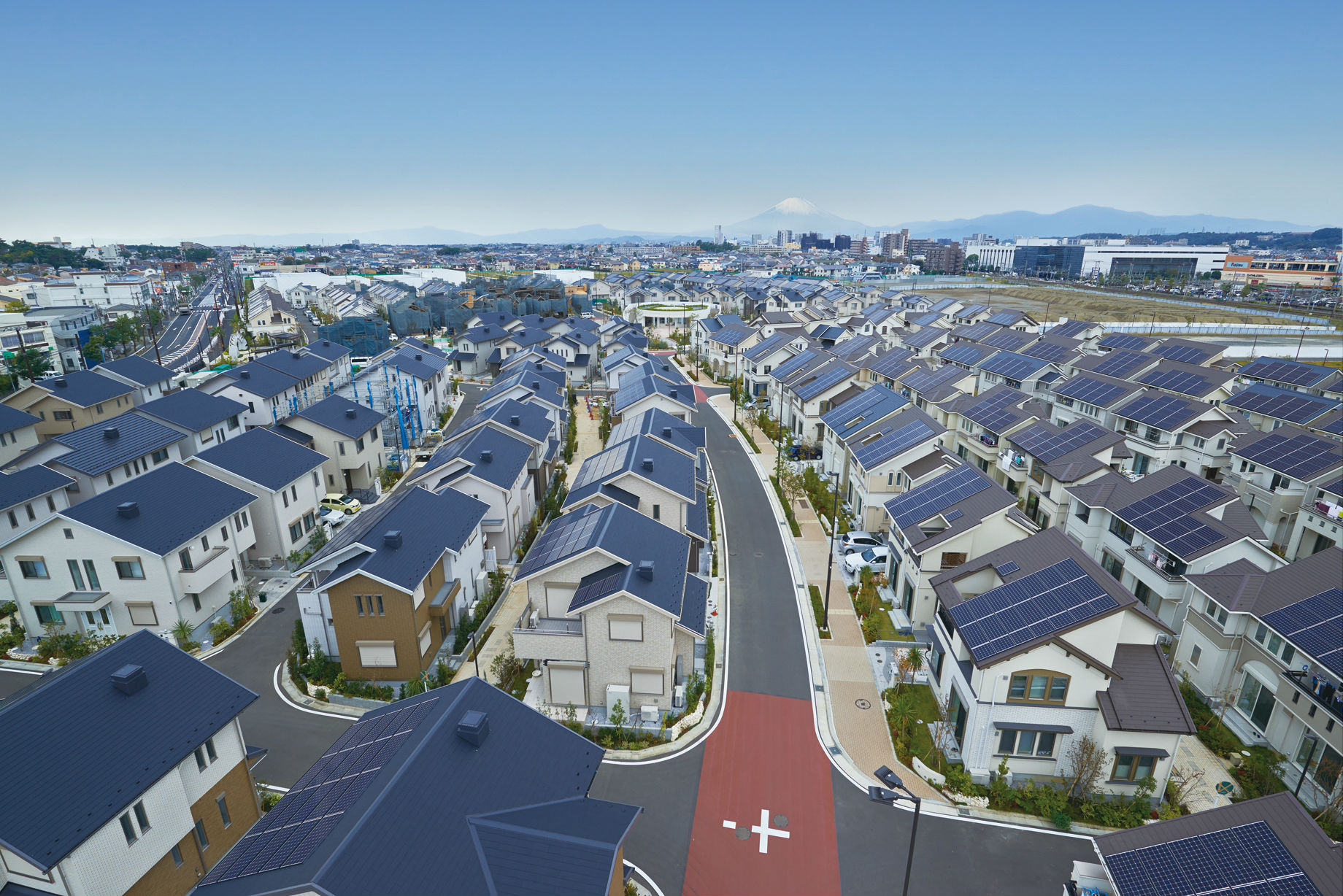
Fujisawa SST is certified as a Business for Promoting Town Development in Harmony with the Environment by Kanagawa Prefecture
“I was very excited when hearing about this project for the first time three years ago, before I took office,” says Kanagawa prefecture governor Kuroiwa Yuji at the grand opening ceremony. “The project has helped address big challenges facing the city today.”
In the wake of the Fukushima meltdown, the project has provided an answer to energy sufficiency during disasters and emergency.
“Fujisawa SST was planned before the massive earthquake that hit Japan on March 11, 2011, so the earthquake damage was not the direct reason for Panasonic to start this project. But the earthquake put the Fujisawa SST project into sharper perspective, making it evident how much safer and more sustainable such a community could be in an emergency,” Panasonic explains in a blueprint.
Ido notes that the successful cooperation with its business partners and residents in “growing the town together” has worked as an effective model for Panasonic’s business growth.
And by “building an ideal environment for the people”, as they put it, Panasonic executives also again well mirrors Matsushita's fundamental principle that says: "A company is a public entity of society."
Panasonic Corporation targets are now as clearly visible as Mt. Fuji that morning, and waiting for the green tech giant are new Sake barrels to break. Only the sky's the limit for its ambition.
What the stars mean:
★ Poor ★ ★ Promising ★★★ Good ★★★★ Very good ★★★★★ Exceptional
Latest News
More News
- Going green to save a bundle (June 08, 2015 | 10:00)
- Green buildings: the rising trend (June 02, 2015 | 09:41)
- Green buildings – key to sustainable urban development in Vietnam (May 18, 2015 | 17:00)
- Feed-in tariffs continue to haunt green energy prospects (December 15, 2014 | 10:47)
- Building material types intrinsic to green ratings (December 09, 2014 | 11:56)
- Green products enjoy a growing presence at Vietbuild Hanoi 2014 (December 01, 2014 | 10:06)
- Country profits from green building (November 24, 2014 | 11:02)
- Firms flout enviroment laws (November 17, 2014 | 10:48)
- Energy efficient sticks and carrots (November 10, 2014 | 15:30)
- Green building - a better approach (October 28, 2014 | 16:04)
















 Mobile Version
Mobile Version